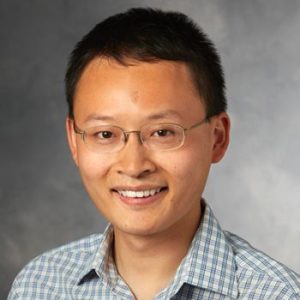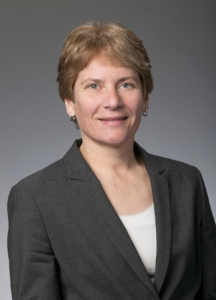
About this Event
This two-day seminar series brings together the brightest minds in molecular imaging to discuss their latest research. Each talk will last 30 min with a full 15 min dedicated for Q&A, related both to their science and their career. So bring that question you’ve always wanted to ask!
Agenda (Note all times are in GMT)
Day 1 (9th November)
13:30 – Ferdia Gallagher (Cambridge University) ‘Clinical imaging of tumour metabolism’
14:15 – David Lewis (CRUK Beatson Institute) ‘Illuminating metabolic vulnerabilities in lung cancer’
15:00 – Federica Pisaneschi (MD Anderson Cancer Center) ‘Imaging ROS burst during myeloid cell activation with 4-[18F]fluoronaphthol’
15:45 – Break
16:00 – Adam Shuhendler (University of Ottawa) ‘Activity-based Sensing by CEST-MRI’
16:45 – Israt Alam (Stanford University) ‘A tale of two biomarkers: visualizing T cell activation with immunoPET’
Day 2 (10th November)
13:30 – André Neves (Cambridge University) ‘Molecular imaging of aberrant glycosylation in cancer’
14:15 – Gilbert Fruhwirth (King’s College London) ‘How non-invasive in vivo cell tracking supports the development of advanced immunotherapeutics’
15:00 – Sarah Bohndiek (Cambridge University) ‘Shedding light on the tumour vasculature’
15:45 – Break
16:00 – John Ronald (Robarts Research Institute) ‘Reporter genes and genome editing for MRI cell tracking: Maybe MRI doesn’t suck?’
16:45 – Michelle James (Stanford University) ‘Shedding light on the immune system to improve detection and treatment of brain diseases using PET’

PHIND Seminar Series: Identifying Microbiome Markers of Progression of Alzheimer’s Disease
Ami Bhatt, M.D., Ph.D.
Assistant Professor of Medicine (Hematology) and of Genetics
Stanford University
Gavin Sherlock, Ph.D.
Associate Professor of Genetics
Stanford University
11:00am – 12:00pm Seminar & Discussion
RSVP: https://stanford.zoom.us/webinar/register/8016040837299/WN_iBOM7R4XQjOPSb20rkUxbw
Location: Zoom Webinar
Webinar URL: https://stanford.zoom.us/s/99730716280
Webinar ID: 997 3071 6280
Dial: +1 650 724 9799 or +1 833 302 1536 (Toll Free)
Password: 767148
ABOUT AMI BHATT
In perpetual awe of how ‘simple’ microbial organisms can perturb complex, multicellular eukaryotic organisms, Ami Bhatt has chosen to dedicate her research program to inspecting, characterizing and dissecting the microbe-human interface. Nowhere is the interaction between hosts and microbes more potentially impactful than in immunocompromised hosts and global settings where infectious and environmental exposures result in drastic and sometimes fatal health consequences.
Ami’s group identifies problems and questions that arise in the course of routine clinical care. Often in collaboration with investigators at Stanford and beyond, the group applies modern genetic, molecular and computational techniques to seek answers to these questions, better understand host-microbe interactions and decipher how perturbation of these interactions may result in human disease phenotypes.
GAVIN SHERLOCK’S RESEARCH INTERESTS
Adaptive Evolution and the Fitness Landscape: When yeast are evolved under various selective pressures in a chemostat, mutations that arise and provide an adaptive advantage will expand within the population. We have pioneered the use of high throughput sequencing to determine the identity of such mutations, as well as to understand the dynamics of the mutations within the populations, and the interactions between the mutations (such as epistasis). Further, we have developed a DNA barcode based lineage tracking system to determine the distribution of fitness effects (DFE) for newly arising beneficial mutations. We have also characterized what we call the genotype-fitness map for beneficial mutations, and have investigated why beneficial mutations provide a positive fitness effect. We are also interested in how beneficial mutations trade-off for different traits, and how those trade-offs constrain adaptive evolution.
Hosted by: Garry Gold, M.D.
Sponsored by the PHIND Center and the Department of Radiology

Ge Wang, PhD
Clark & Crossan Endowed Chair Professor
Director of the Biomedical Imaging Center
Rensselaer Polytechnic Institute
Troy, New York
Abstract:
AI-based tomography is an important application and a new frontier of machine learning. AI, especially deep learning, has been widely used in computer vision and image analysis, which deal with existing images, improve them, and produce features. Since 2016, deep learning techniques are actively researched for tomography in the context of medicine. Tomographic reconstruction produces images of multi-dimensional structures from externally measured “encoded” data in the form of various transforms (integrals, harmonics, and so on). In this presentation, we provide a general background, highlight representative results, and discuss key issues that need to be addressed in this emerging field.
About:
AI-based X-ray Imaging System (AXIS) lab is led by Dr. Ge Wang, affiliated with the Department of Biomedical Engineering at Rensselaer Polytechnic Institute and the Center for Biotechnology and Interdisciplinary Studies in the Biomedical Imaging Center. AXIS lab focuses on innovation and translation of x-ray computed tomography, optical molecular tomography, multi-scale and multi-modality imaging, and AI/machine learning for image reconstruction and analysis, and has been continuously well funded by federal agencies and leading companies. AXIS group collaborates with Stanford, Harvard, Cornell, MSK, UTSW, Yale, GE, Hologic, and others, to develop theories, methods, software, systems, applications, and workflows.

PHIND Seminar Series: Topics Below
Ahmed Metwally, PhD
“Pre-symptomatic detection of COVID-19 via wearables biosensors”
Postdoctoral Scholar – Michael Snyder, PhD Lab
Department of Genetics
Stanford University
Pierre-Alexandre Fournier, MS
“Continuous remote cardiorespiratory and health monitoring using the Hexoskin biometric shirt”
Co-founder and CEO
Hexoskin
Location: Zoom Webinar
Webinar URL: https://stanford.zoom.us/s/98925964231
Dial: +1 650 724 9799 or +1 833 302 1536 (Toll Free)
Webinar ID: 989 2596 4231
Passcode: 298382
11:00am – 12:00pm Seminar & Discussion
RSVP: https://stanford.zoom.us/webinar/register/WN_bruT-pvvQUePuBLqm2SLkQ
Ahmed Metwally Abstract
Wearable devices digitally measuring vital signs have been used for monitoring health and illness onset and have a high potential for real-time monitoring and disease detection. As such, they are potentially useful during public health crises, such as the current COVID-19 global pandemic. In my talk, I’ll discuss how wearables biosensors can be used as a tool to early detect COVID19 onset using physiological and activity data. By using retrospective smartwatch data, we showed that 63% of the COVID-19 cases could be detected before symptom onset in real-time via the occurrence of extreme elevations in resting heart rate relative to the individual baseline. Our findings suggest that consumer wearables may be used for the large-scale real-time detection of respiratory infections, often pre-symptomatically, and provide an approach for managing epidemics using digital tracking and health monitoring.
About Ahmed Metwally
Ahmed Metwally is a postdoctoral scholar in the Snyder lab at Stanford University. Ahmed received his Ph.D. in Bioinformatics/Bioengineering and MS in Computer Science (focused on Deep Learning), both from the University of Illinois at Chicago (UIC) in 2018. He currently works on developing novel machine learning methods for longitudinal multimodal biomedical data fusion (omics and wearable biosensors data) to early detect cardiometabolic diseases and personalize their treatments. Ahmed has received numerous awards, such as NIH Predoctoral Translational Scientist fellowship, ISMB’20 best talk award, Stanford COVID-19 RISE Grant, second-place award at Stanford Health++ Hackathon, and many travel awards NSF, IEEE, ISCB, and UIUC for various educational and scholarly activities.
Pierre-Alexandre Fournier Abstract
The Hexoskin Connected Health platform will be discussed as an example of a biometric shirt validated for use in telehealth and clinical research. Hexoskin has the only clinically validated biometric garment which provides continuous monitoring of numerous and unique physiological parameters. Hexoskin is an enabling technology for telehealth use cases, such as remote patient monitoring, rehab, and detect the onset of illness. Hexoskin offers a unique set of high-resolution biometric data that can continuously monitor activity, sleep, cardiac and respiratory data. Projects in fields such as cardiology, respiratory, behavioral and physiological psychology, biofeedback research, sleep research, and health will be described. The Hexoskin Connected Health Platform provides researchers with accessible solutions such as the Hexoskin Dashboards, Open API, and Apps to manage, visualize, annotate, analyze, and export raw & processed health data. Data extraction tools allow access to the raw data with time series for machine learning and artificial intelligence projects.
About Pierre-Alexandre Fournier
Pierre-Alexandre Fournier is co-founder and CEO of Hexoskin, a Montreal-based company focused on clinical-grade wearable sensors and AI software for health and clinical research. Hexoskin was founded in 2006 and in 2013 released the first iPhone compatible smart clothing for health monitoring, winning several international awards. In 2018 Hexoskin launched a remote health monitoring system for astronauts on the International Space Station. Hexoskin recently reached the milestone of 100 scientific publications. Pierre-Alexandre earned his MASc and his BEng in Electrical Engineering from the Ecole Polytechnique de Montreal and became a lecturer there teaching machine learning. He completed the Harvard Business School HBX Core program with high honors. Pierre-Alexandre is also an advocate for transparency in healthcare, patient empowerment, and healthcare innovation through design.
Hosted by: Angela McIntyre, Executive Director, eWEAR Initiative
Sponsored by: PHIND Center, Department of Radiology, eWEAR Initiative

“A Distributionally Robust Optimization Method for Adversarial Multiple Kernel Learning with Application to the Semantic Hashing of CT Images”
Masoud Badiei Khuzani, PhD
“Prediction of Clinical Outcomes in Diffuse Large B-Cell Lymphoma (DLBCL) Utilizing Radiomic Features Derived from Pretreatment Positron Emission Tomography (PET) Scan”
Eduardo Somoza, MD

Radiology Department-Wide Research Meeting
• Curt Langlotz, MD, PhD: Overview of the AIMI Center
• Brian Hargreaves, PhD: Research Details from Town Hall, Q&A, and COVID19 Updates
Location: Zoom – Details can be found here: https://radresearch.stanford.edu
Meetings will be the 3rd Friday of each month.
Hosted by: Brian Hargreaves, PhD
Sponsored by: the the Department of Radiology

CEDSS: Systematic identification of fluid-based biomarkers for ovarian and prostate cancer
Thomas Kislinger, Ph.D.
Professor & Chair
Department of Medical Biophysics
University of Toronto
Senior Scientist
Princess Margaret Cancer Centre
Zoom Webinar Details
Meeting URL: https://stanford.zoom.us/s/94878578384
Dial: +1 650 724 9799 or +1 833 302 1536
Webinar ID: 948 7857 8384
Passcode: 692692
Register Here
ABOUT
Thomas Kislinger received his MSc in Analytical Chemistry from the University of Munich, Germany (1998). He completed his PhD in 2001, investigating the role of Advanced Glycation Endproducts in diabetic vascular complications at the University of Erlangen, Germany and Columbia University, New York. Between 2002 and 2006 he completed a post-doctoral fellowship at the University of Toronto. In 2006 he joined the Princess Margaret Cancer Centre as an independent investigator. Dr. Kislinger holds positions as Senior Scientist at the Princess Margaret Cancer Centre and as Professor and Chair at the University of Toronto in the Department of Medical Biophysics. The Kislinger lab applies proteomics technologies to translational and basic cancer biology. This includes the development of novel proteomics methodologies, identification of liquid biopsy signatures and the molecular identification of novel cell surface markers.
Hosted by: Utkan Demirci, Ph.D.
Sponsored by: The Canary Center & the Department of Radiology
Stanford University – School of Medicine

Intersection of Imaging and Therapeutics – MIPS Mini-Retreat
Hosted by: Dr. Heike Daldrup-Link, MD & Dr. Katherine Ferrara, PhD
Sponsored by: Department of Radiology, Molecular Imaging Program at Stanford
The MIPS Mini-retreat series brings together members of the MIPS and greater School of Medicine community to discuss current opportunities for research and collaborations. Each month we will discuss a different topic and we invite all those interested to attend. The mini-retreats will be roughly 1.5-2 hours in length with ample time for discussion throughout. We hope you can join us and spark new collaborations!
Zoom Webinar Information
Webinar URL: https://stanford.zoom.us/j/96227145646
Dial: US: +1 650 724 9799 or +1 833 302 1536 (Toll Free)
Webinar ID: 962 2714 5646
Passcode: 3039816
Agenda (all times are in PST)
8:00-8:05 AM – Opening Remarks – Katherine Ferrara, PhD
8:05-8:20 AM – Image-guided Therapy – Heike Daldrup-Link, MD
8:20-8:35 AM – Imaging Antibody Distribution – Eben Rosenthal, MD
8:35-8:50 AM – MRgFUS and Pancreatic Cancer – Pejman Ghanouni, MD, PhD
8:50-9:05 AM – RefleXion – Lucas Kas Vitzhum, MD
9:05-10:00 AM – Discussion – Moderated by: Katherine Ferrara, PhD

James Zou, PhD
Assistant Professor of Biomedical Data Science and, by courtesy, of Computer Science and of Electrical Engineering
Stanford University
Title: Computer Vision to Phenotype Human Diseases Across Physiological and Molecular Scales.
Abstract: I will present new computer vision algorithms to learn complex morphologies and phenotypes that are important for human diseases. I will illustrate this approach with examples that capture physical scales from macro to micro: 1) video-based AI to assess heart function (Ouyang et al Nature 2020), 2) generating spatial transcriptomics from histology images (He et al Nature BME 2020), 3) and learning morphodynamics of immune cells. Throughout the talk I’ll illustrate new design principles/tools for human-compatible and robust AI that we developed to enable these technologies (Ghorbani et al. NeurIPS 2020, Abid et al. Nature MI 2020).
Bio: James Zou is an assistant professor of biomedical data science and, by courtesy, of CS and EE at Stanford University. He is also a Chan-Zuckerberg investigator. James develops novel machine learning algorithms that have strong statistical guarantees and that are motivated by human health challenges. Several of his methods are widely used by tech, biotech and pharma companies. He also works on questions important for the broader impacts of AI—fairness, accountability, interpretations, and robustness. He has received 5 best paper awards at top CS venues, a NSF CAREER Award, a Google Faculty Award, and a Tencent AI award.

MIPS Seminar Series: Translational Opportunities in Glycoscience
Carolyn Bertozzi, PhD
Director, ChEM-H
Anne T. and Robert M. Bass Professor in the School of Humanities and Sciences
Professor, by courtesy, of Chemical and Systems Biology
Stanford University
Location: Zoom
Webinar URL: . https://stanford.zoom.us/j/94010708043
Dial: US: +1 650 724 9799 or +1 833 302 1536 (Toll Free)
Webinar ID: 940 1070 8043
Passcode: 659236
12:00pm – 12:45pm Seminar & Discussion
RSVP Here
ABSTRACT
Cell surface glycans constitute a rich biomolecular dataset that drives both normal and pathological processes. Their “readers” are glycan-binding receptors that can engage in cell-cell interactions and cell signaling. Our research focuses on mechanistic studies of glycan/receptor biology and applications of this knowledge to new therapeutic strategies. Our recent efforts center on pathogenic glycans in the tumor microenvironment and new therapeutic modalities based on the concept of targeted degradation.
ABOUT
Carolyn Bertozzi is the Baker Family Director of Stanford ChEM-H and the Anne T. and Robert M. Bass Professor of Humanities and Sciences in the Department of Chemistry at Stanford University. She is also an Investigator of the Howard Hughes Medical Institute. Her research focuses on profiling changes in cell surface glycosylation associated with cancer, inflammation and infection, and exploiting this information for development of diagnostic and therapeutic approaches, most recently in the area of immuno-oncology. She is an elected member of the National Academy of Medicine, the National Academy of Sciences, and the American Academy of Arts and Sciences. She also has been awarded the Lemelson-MIT Prize, a MacArthur Foundation Fellowship, the Chemistry for the Future Solvay Prize, among many others.
Hosted by: Katherine Ferrara, PhD
Sponsored by: Molecular Imaging Program at Stanford & the Department of Radiology